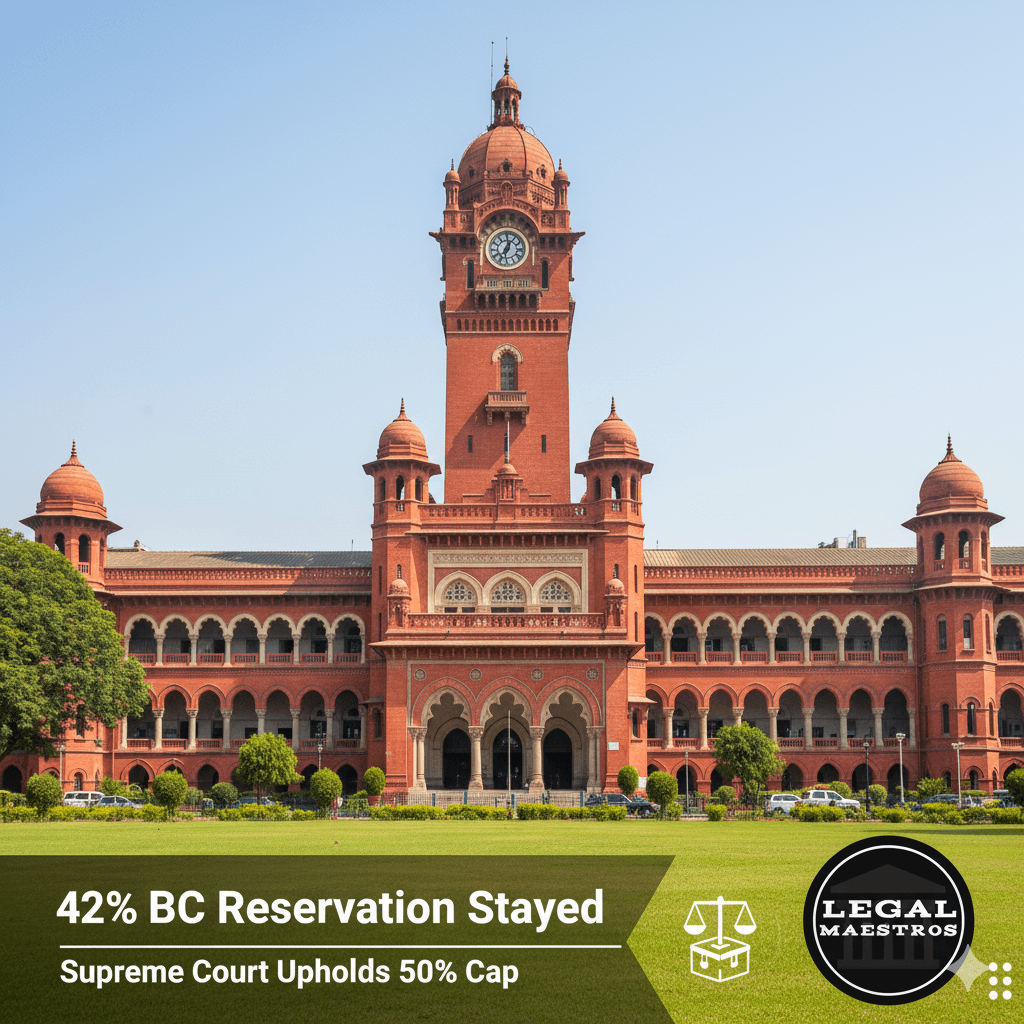
A plea made by a government of Telangana, complaining of a High Court order that placed a stay on its move to grant a 42 percent reservation to Backward Classes (BCs) in the forthcoming local body elections in the state was dismissed by the Supreme Court of India. The ruling by the apex court is practically in reaffirmation of the constitutionally stipulated ceiling of 50 percent on all the reservations made by the state government in its capacity to overstep the assigned limit.
The problem was triggered when the Telangana government provided an ordinance to raise the reservation percentage of the Backward Classes in the Panchayat Raj elections. This would have pushed the cumulative reservation in the local bodies of the state to more than 67 percent, which is blatantly violating the maximum limit governing the same, as established by the Supreme Court in earlier landmark decisions. This act was later appealed in the high court of Telangana.
Based on the challenge, the Telangana High Court had put on hold the move of the government based on the legal precedent. The logic of the High Court was strongly based on the Supreme Court ruling of K. Krishna Murthy (2010) case that saw the lifting of the reservation quota of 50 percent that was originally established in the Indra Sawhney (1992) case, to state jobs and education, to local body elections. The High Court asked the state government to recalculate the percentage of reservations to take care of the fact that the total quota of SCs, STs, and BCs is not exceeding the 50% mark.
For any queries or to publish an article or post or advertisement on our platform, do call at +91 6377460764 or email us at contact@legalmaestros.com.
Telangana government was not satisfied with the interim order given by the High Court and appealed to the Supreme Court. The state claimed that the raised reservation was necessary to guarantee proper representation of the Backward Classes which make a notable percentage of the population of the state. But the Supreme Court bench did not believe this argument and had no reason to intervene with the well-reasoned order of the High Court. The refusal to accept the plea has sent a clear signal to the state governments that it cannot randomly violate the 50 percent reservation ceiling on political or social grounds without providing any empirical evidence to support such an action when unparalleled conditions were not proved in this case. The decision will see to it that in the future polls in Telangana, the local body polls will be conducted with quotas of reservation that are not beyond the constitutional quota.







